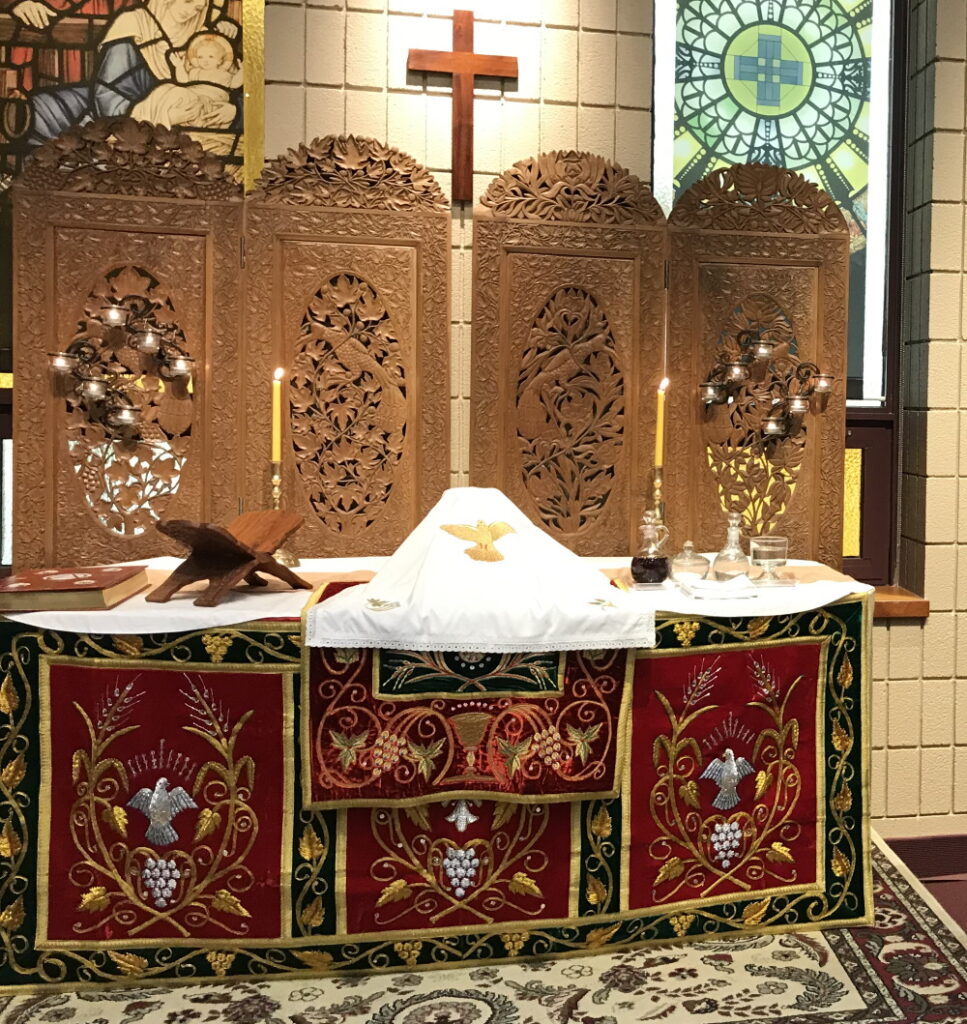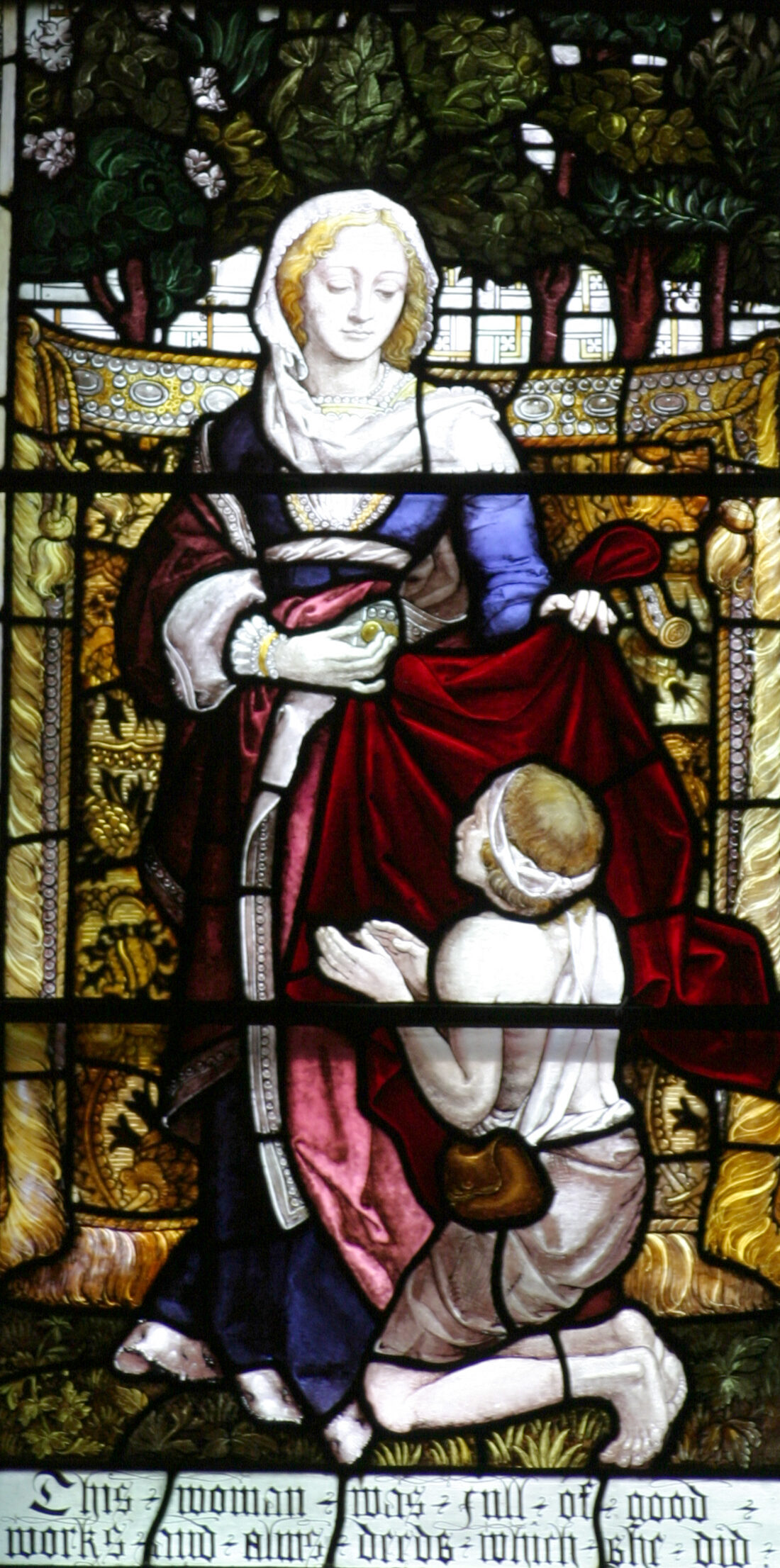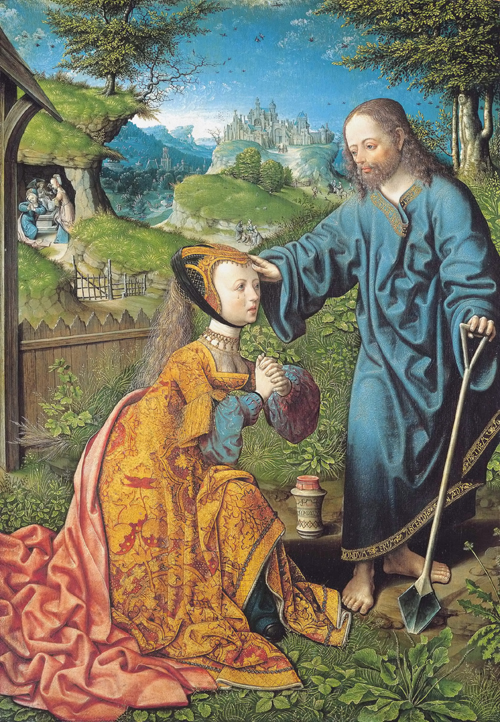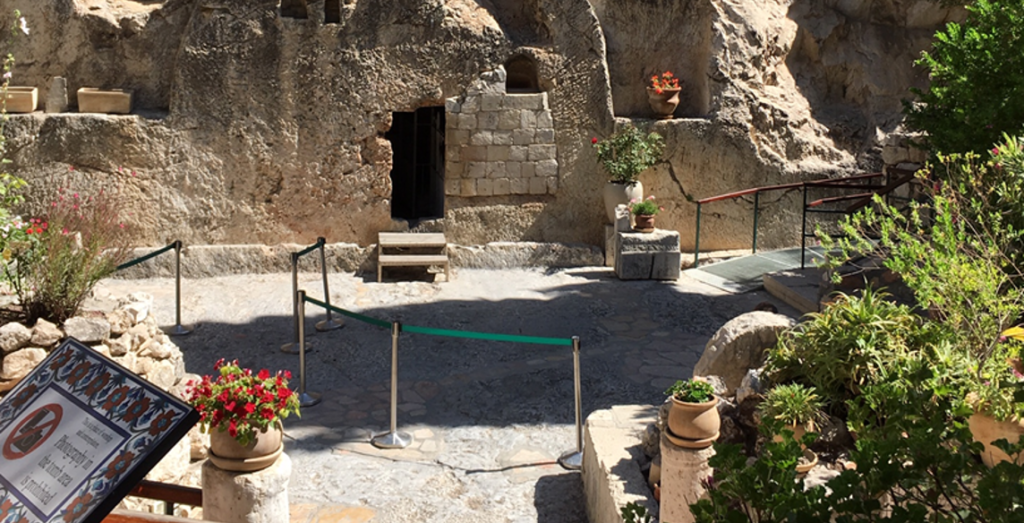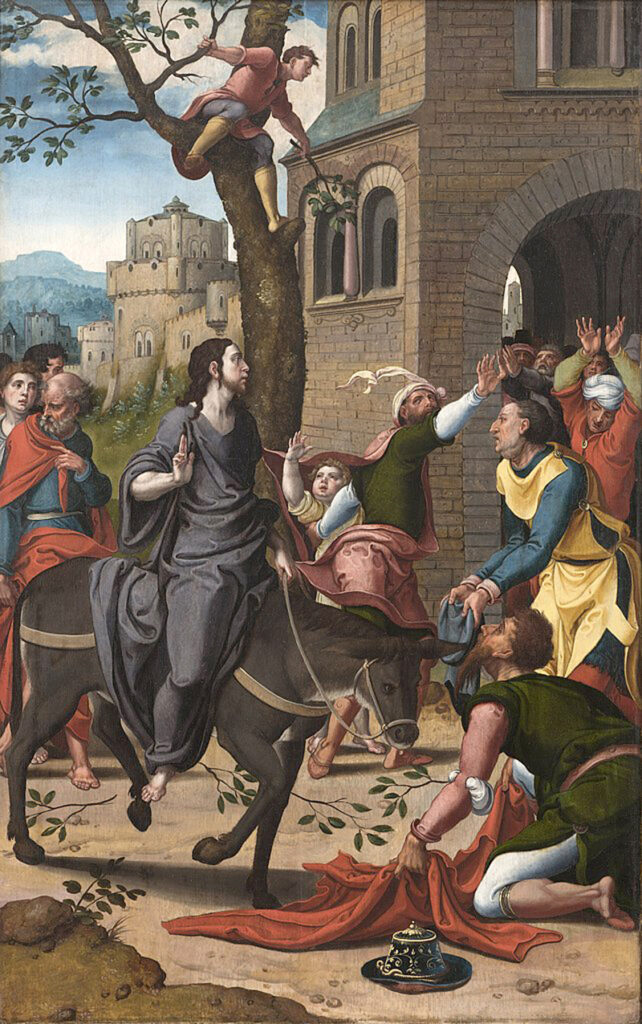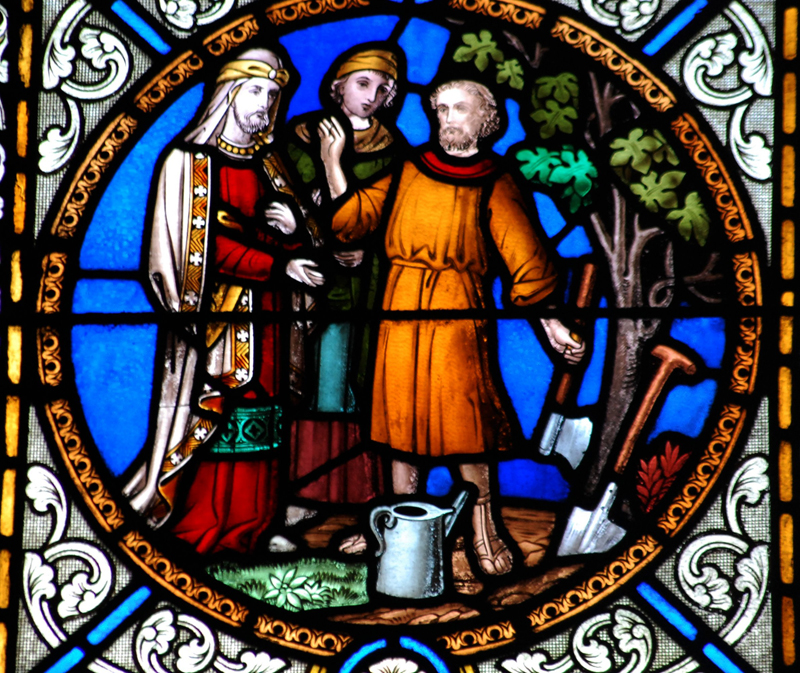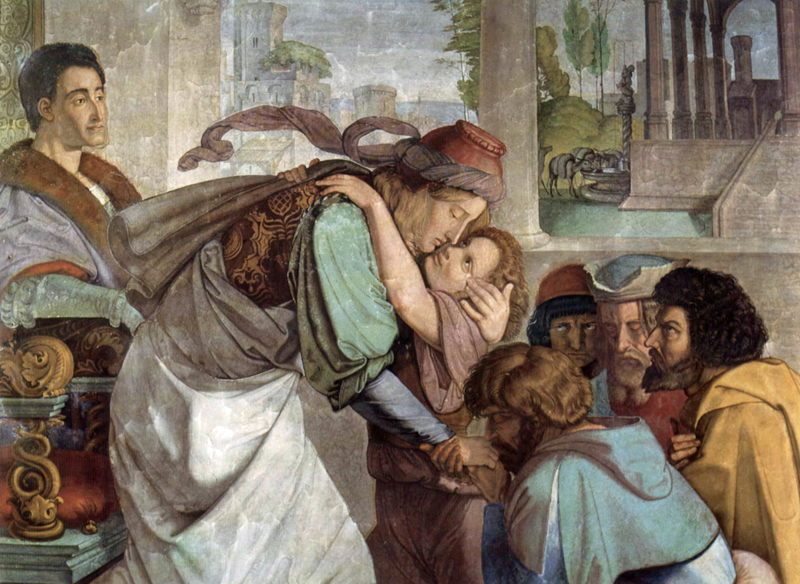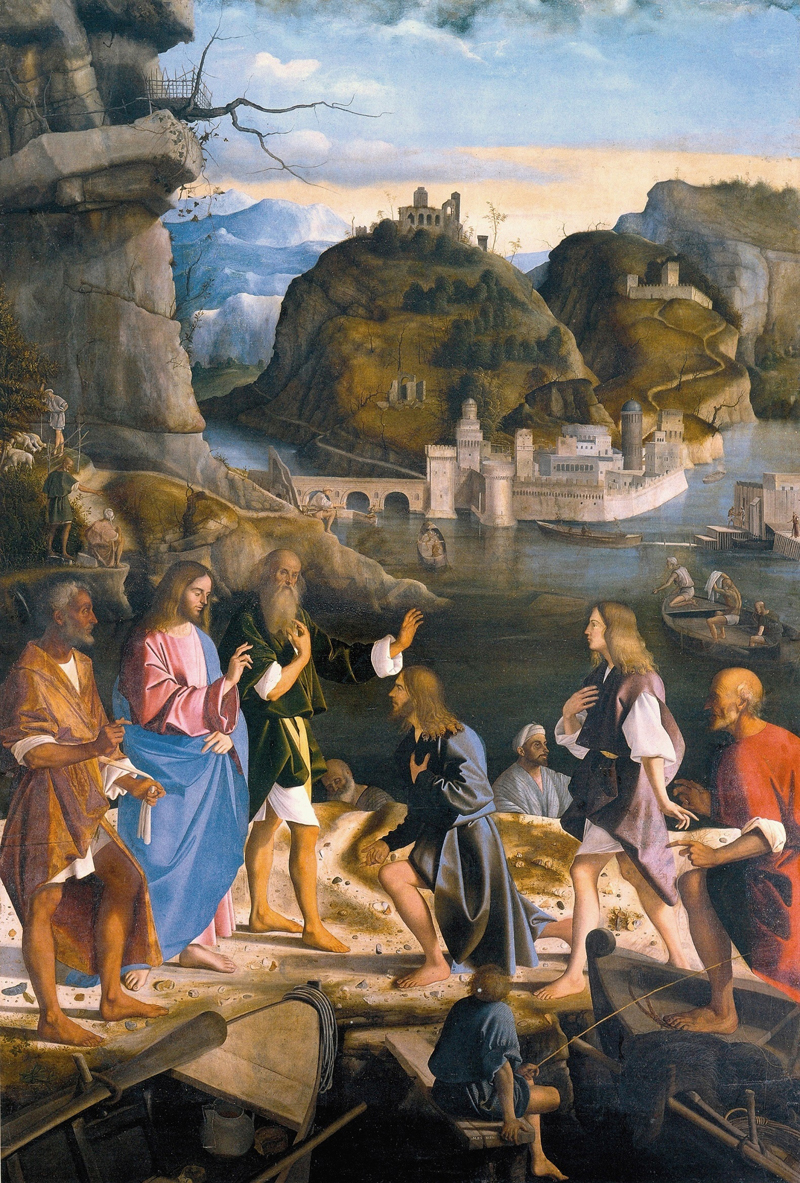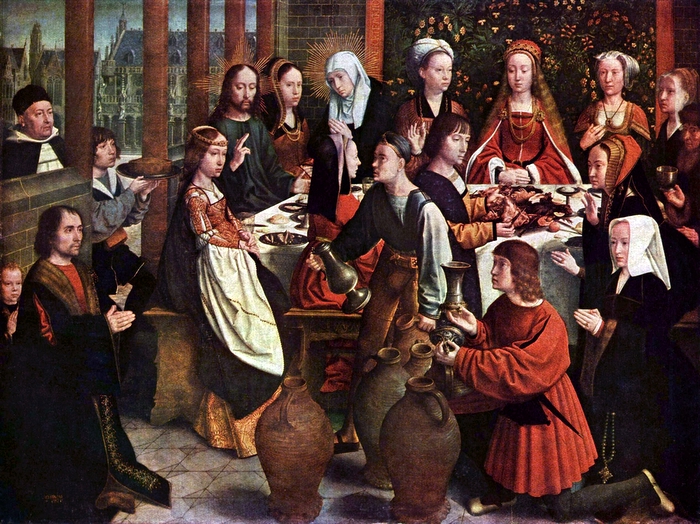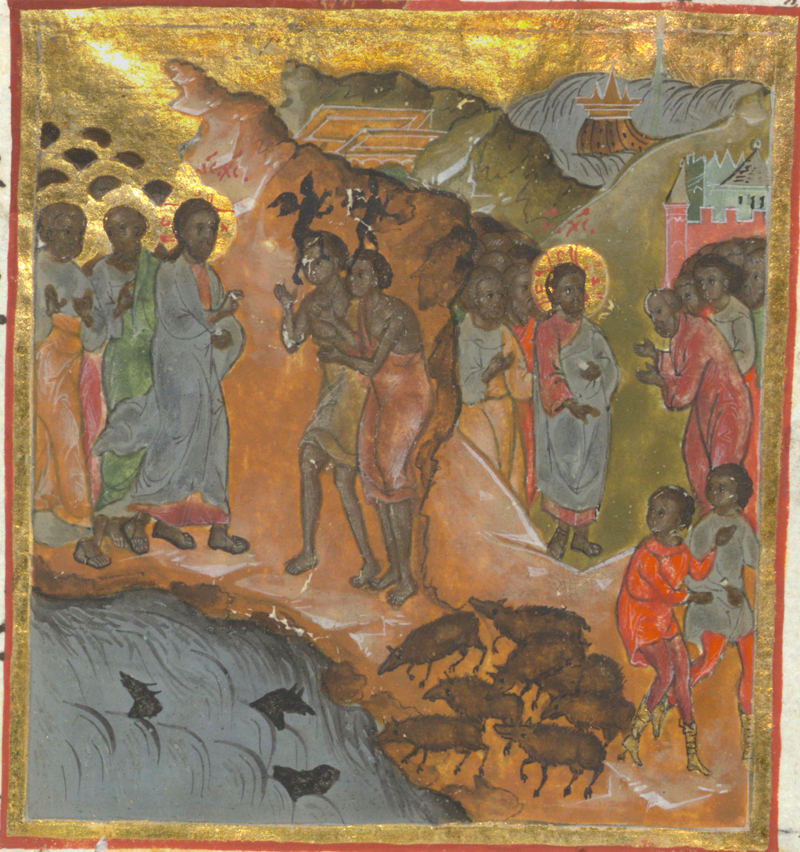
St. Luke 8:26-39; 1 Kings 19:1-4, 5-7, 8-15a; Psalm 42 and 43; Galatians 3:23-29
Barekmor,
Glory be to the Father, and to the Son, and to the Holy Spirit,
Demon Possession
In our Gospel reading, we have the interesting topic of demon possession. A day or so before studying this passage, I was asked me if it is possible for Christians to be demon possessed or to come under the influence of demons. This question fit in with some of what I studied.
Why Do Demons Possess People?
We know that this man was possessed which brings up two questions. First, why do demons possess people, and second, how are people possessed? St. Cyril of Alexandria answers this first question by referring us back to Psalm 36:6,
Thy righteousness is like the great mountains; thy judgments are a great deep:
Not all the ways of God can be known. They are beyond us. There are some things that we just can’t understand with our human minds. We know that God purposely permits some to fall into their power. It is not that God wants them to suffer, but he wants a warning to be given to us, to keep us from opening ourselves up to the influence of demons. The suffering of one edifies many.
How Are People Possessed?
This brings us to the second question, how are people possessed? St. Cyril provides us with an answer to this as well.
If there is anyone among us who is wanton, swinish, filth loving, impure and willingly contaminated with the abominations of sin, God permits such a one to fall into their power and sink into the abyss of damnation. It will never happen that those who love Christ will become subject to them.1
So, how are people possessed by demons? They play too close to the edge of the cliff of sin. I heard recently that John Piper has said that asking if something is a sin is the lowest question possible. It is asking what I can get away with rather than seeking Christ.
Danger of Falling
If I am attempting to see how close to the edge I can get and still have Christ and a love for Him, I am on dangerous ground. Our salvation is a continuous process, as our Metropolitan has pointed out before. We have been saved, we are being saved, and we will be saved. Until eternity there is always the danger that we may fall away. We remember the words of St. Paul,
But I keep under my body, and bring it into subjection: lest that by any means, when I have preached to others, I myself should be a castaway.
And again,
Take heed, brethren, lest there be in any of you an evil heart of unbelief, in departing from the living God.
The danger of falling away is always present. It can happen as we give Satan little areas of our life, a piece at a time until we find that the evil one has control over us and we are running the risk of being possessed as this man was. Therefore, let us purpose to love God with all of our heart. When we fail, to repent quickly. When we see our brother or sister fail, to admonish them quickly and urge them back to loving Christ.
Confession of the Demons
The fathers found the confession of the demons interesting. They confessed that Jesus was the Son of God, and the heretics of their day did not. The very enemies of God knew who Jesus was, but those who had fallen away did not.
A Picture of Salvation
In the demon possessed man, we have a picture of us the gentiles. We were covered in sin, naked to error, and open to sin. God stepped in and delivered us from the forces of evil and clothed us in His righteousness. We also should not fear the evil spirits, because they couldn’t even enter the pigs without the permission of Christ. We are in His hands and he will look after us.
Christ healed or delivered this man from the power of the evil one. The philosophers couldn’t do this. The leaders of the synagogue couldn’t do this. Christ alone could heal him and us if we are but willing to be healed by Him. Christ will not force himself on anyone. If we want our own way, He will let us have it, but we run the risk of Satan ruling our lives and he is much harsher master.
After his deliverance, the demon possessed man became a temple of God, where formerly his mind had been a grave full of evil spirits. He is now sent to his people to proclaim the great deeds of God.
Victory and Fear
We turn now to the prophet Elijah. He was a man, and a just man at that who had announced a famine for Israel’s rebellion, killed the false prophets, had made fire come down on soldiers that came to take him away, but he ran from queen Jezebel. He was able to do all these things because he was submitted to God.
However, after these great victories, fear entered in. He was running well but perhaps overconfidence entered in and he took his eyes off of God for a short time and was overcome by fear. We see, however, in the midst of his fear he doesn’t fear death. He offers his life to God. We may stumble and be overcome by a sin, but if we turn again, God will receive us. Is the overarching attitude in our life that we love God or that we can participate in as much sin as possible?
It is interesting that he is running for his life and he hopes for death. St. Ephrem the Syrian explains,
He hopes for death, but not for the one with which Jezebel had threatened him, that is, the one that would have given the prophets of Baal the pretext to say that Baal had defeated the God of Israel,2
Desiring to Please God
In the midst of his fear, he is still desiring to please God, to honour God. He doesn’t want shame to come upon the name of the Lord. He fell to the temptation to run away in fear, but he has come to quick repentance. The Lord then interviews him and commissions him to go out once more as his prophet.
Longing for God
In our Psalm reading we see a longing for God. We saw this longing first in the demon possessed man. (He came to Christ.) Second, we saw it in Elijah. (Even though he ran for his life, he threw himself on the mercy of God.)
The longing that the psalmist describes is a longing to appear before God. Christ the Lord is this spring of water that he is longing for, and whoever receives this spring into them, they will be transformed. They will have the love of Christ that will keep us close to Him and away from the power of the evil one.
Joy in the House of the Lord
The psalmist remembers a day of joy in the house of the Lord. St. Augustin describes it as an everlasting party, telling us that the face of God is joy never diminished. We long with the psalmist for this eternal joy and celebration where we can worship God with the angels forever. When we are discouraged, we strengthen ourselves with this hope of joy.
Law the Preparation for Grace
“Deep calleth unto deep” Scripture of the first testament calls to Scripture of the Second Testament. The law prepares the way of grace. The Psalmist can see that salvation is coming. Salvation is coming, this is the encouragement of both these Psalms. We are to strengthen ourselves and to wait on God.
The law is preparing the way of grace and it is not a negative thing to be held in captivity under the law until faith was revealed. It prepares us for salvation. The greatest example of this is in the Jews response to the Gospel. For it is only recorded of them that they sold their possessions and laid the money at the feet of the apostles. We remember the words of Jesus,
Wherefore I say unto thee, Her sins, which are many, are forgiven; for she loved much: but to whom little is forgiven, the same loveth little.
It is not necessarily that the Jews have been forgiven more sins, but they were more aware of them being raised under the law. For all creation is under the lesser law of natural revelation, which creates a limited awareness of sin. The Greeks were in a place kind of between the two. God gave them philosophy to prepare them for faith.
The Law our Tutor
The purpose of the law was to bring us to Christ, to bring us to our inheritance. Just as the tutor or custodian looked after the children until they were ready for their inheritance from their father. St. Jerome points out the ridiculousness of a child looking to the tutor for that inheritance. We must never elevate the law to the place of Christ.
Grace has come in the revealing of Christ. Faith has come now. Until faith and grace come, the law in its tutorship cooperated with grace. The problem with law occurs if it continues exerting its authority of a tutor after grace has come. It then forgets that it is cooperating with grace and becomes an opponent to it.
A Delicate Balance
For a long time, I really struggled with this. I saw the law as the end all, the goal to be pursued, and I believe it was the reaction of the low view that some had to the law, but I had overreacted. I had also received some teaching that the most important thing was to meditate on the law and that would give me understanding for the rest of Scripture. For example, if I was having difficulty understanding I Corinthians 13 then the solution was to meditate on the ten commandments. While this is close to the truth, I have since learned that we understand Scripture through Christ and living in love and not through the law.
This is kind of a delicate balance. It is not that the law is bad or that the law is everything but that the law works in a supporting role to Christ. We are not saying the law is gone, because then we run the risk of losing insights into God’s character along with many examples to follow. God has placed it as a tool of protection and instruction that we might know His Son and experience His salvation. If I have complicated this too much please comment below and I’ll try to explain better.
Our New Position
We are no longer under a custodian. What is our position now? We are children of God through baptism into Christ. We are clothed in Christ. The law is obsolete, and we now have the mind of Christ living in and through us. As St. Paul has testified earlier in the epistle,
For I through the law am dead to the law, that I might live unto God.
I am crucified with Christ: nevertheless I live; yet not I, but Christ liveth in me: and the life which I now live in the flesh I live by the faith of the Son of God, who loved me, and gave himself for me.
What is the result of being baptised into Christ, being clothed with Him? St. Cyprian tells us that this means that we are ready to receive the Holy Spirit. There are two immediate results – Unity and being children of Abraham.
Unity
First, we are all one in Christ. There is no difference between any believer we are all equal in God. We have all been clothed with the same Christ. Our disunity with a brother or sister, with someone of another ethnicity or different social status is a sign that we are out of fellowship with Christ.
He prayed for us to be one and in baptism St. Paul here tells us that we are one. Just over fifty days ago, we renewed our baptismal vows. Now here we have a means of determining are we walking in our baptism? Are we holding something against our brother or sister that is preventing unity with them? Are we seeking how we can be different from them or are we looking for similarities?
A good example of this is Pope Francis. Since the beginning of his term, he has been seeking to reconcile with both the Eastern and Oriental Orthodox churches. Two years ago, He and the Coptic Pope agreed to recognise the baptism of each other’s members. He has also met with the Patriarch of the Russian Orthodox church along with several other Patriarchs, I believe.
Children of Abraham
Second, we are children of Abraham and heirs according to the promise. In Christ the promises to Abraham have been fulfilled. All those who have been clothed in Christ, are joined into that covenant, into that hope of redemption. In Christ we receive the blessings of God.
Therefore, let us view the law in its proper place. It is a necessary tool to bring us to Christ and guides and protects us until we receive Him.
Second, we must make unity with one another a top priority. Instead of looking for ways to tear down and criticize others, we must look at how we can build up others. We must look for ways to praise and encourage those around us. Let us join in our Lord’s final prayer and ask for unity in the body of Christ, and make it our goal to be reconciled with all believers. We ought to seek whether we are desiring to love Christ with all of our hearts, or are we wanting to taste of sin and still have Christ? If we fall, let us be quick to repent like the Prophet Elijah. God’s law has brought us to his grace.
In the name of the Father, and of the Son, and of the Holy Spirit,
Amen
~ Fr. Matthew
1 Thomas C. Oden and Arthur A. Just Jr., Ancient Christian Commentary on Scripture New Testament III (Downers Grove, IL: InterVarsity Press, 2003), 140-141
2 Thomas C. Oden and Marco Conti, Ancient Christian Commentary on Scripture Old Testament V (Downers Grove , IL: InterVarsity Press, 2008), 115
Luke the Cypriot (active 1583-1625). Jesus, the Gerasene, and the Unclean Spirits, from Art in the Christian Tradition, a project of the Vanderbilt Divinity Library, Nashville, TN. http://diglib.library.vanderbilt.edu/act-imagelink.pl?RC=56179 [retrieved August 9, 2019]. Original source: https://www.flickr.com/photos/medmss/7352474870/.


